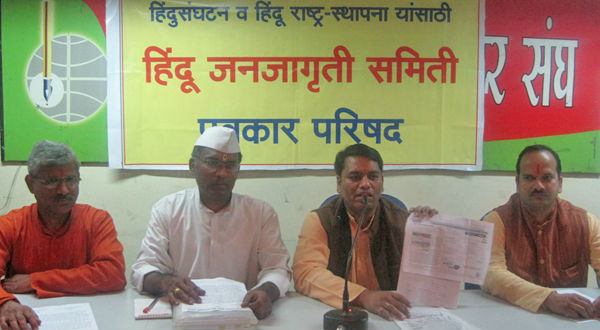Hell would freeze over before the prime minister would apologise for his wrongdoings.
COMMENT

Last July, the New York Times (NYT) carried a report on the apology by the outgoing South Korean President Lee Myung-bak, for the various corruption scandals said to have undermined his government. Several close colleagues and relatives of the president had been prosecuted and jailed. Many of them had influenced the workings of the government.
In recent weeks, Malaysians have noticed a succession of people who have come forward to implicate Prime Minister Najib Tun Razak, his wife Rosmah Mansor, his brother Nazim Abdul Razak as well as those in positions of responsibility, such as Attorney-General Abdul Gani Patail and Home Minister Hishammuddin Hussein.
These people, whose reputations are tarnished, appear to have no desire to clear their names, nor deny the allegations. Have they complete disregard for the rakyat?
Was it pure coincidence that Rosmah has announced the publication of her biography, which she and her “publishing adviser”, Deputy Minister in the Prime Minister’s Department, Ahmad Maslan, claim will address the various allegations made against her? Had she been prepared for a day of revelations by disgruntled former associates?
The pre-launch is most unusual. JK Rowling did not have a pre-launch for her books. Most authors launch their books with a promotional tour.
What is significant about president Lee’s humiliating apology and the NYT claim that “he could hardly lift his face”, was that when he came to office, Lee described his government as “morally perfect”.
During his television appearance, Lee said, “The more I think about it, the more it crushes my heart. But whom can I blame now? It’s all because of my negligence. I bow before the people in apology”.
Hours after Lee concluded his nationwide apology, two of his colleagues were arrested for corruption. In all, three of Lee’s relatives, four senior presidential aides and several former senior officials in the Cabinet and government-run companies had been implicated.
Corruption menace
Malaysian leaders don’t apologise and hell would freeze over before Najib would bow before the rakyat and apologise for his wrongdoings or the various scandals which have hit his government.
In September 2010, a year and a half after becoming prime minister, Najib told Malaysians that “combating corruption is not only a moral imperative but a prerequisite for national survival”.
In a speech that was delivered by his deputy, Muhyiddin Yassin, at the Asian Development Bank/Organisation for Economic Cooperation and Development (ADB/OECD) Anti-Corruption Initiative for Asia and the Pacific’s 10th Regional Seminar: Criminalisation of Bribery, Najib said that three organisations would fight the corruption menace – the police for investigating the criminal acts, the Attorney-General’s Chambers for dealing with prosecutions and the Prime Minister’s Department for “crafting the preventive eco-system”.
Najib stressed that “prevention and education should be given equal attention alongside enforcement in the fight against corruption”.
He praised the Malaysian Anti-Corruption Commission (MACC) for receiving an increased amount of information from the public which led to investigations, arrests and prosecutions. This, Najib concluded, was a reflection of the public’s confidence in the government.
Despite the recent revelations by carpet trader Deepak Jaikishan and former inspector-general of police Musa Hassan, the rakyat has yet to see an investigation being initiated by the police or the MACC. The Attorney-General’s Chambers has also remained silent.
In 2010, Najib claimed that “…studies reveal that corruptors tend to hide themselves or their ill-gotten gains in foreign jurisdictions. The denial of a safe haven for corruptors and their proceeds of crime is vital in any strategy to combat corruption”.
Dirty money
Recently, the Washington-based Global Financial Integrity (GFI) reported that around RM200 billion of illicit outflows had been recorded by Malaysia in 2010, the highest amount for the period 2001 to 2010. The revised figures for 2009 are estimated at RM93 billion.
According to the GFI, 20% of the dirty money are the “proceeds of corruption, bribery theft and kickbacks” and that Malaysia was ranked third in the world, behind China and Mexico.
If both Najib and Bank Negara are concerned, what steps are they taking to address the issue? Will the steps be enough to allay our fears?
Last year, Najib, who is also the finance minister, said that Bank Negara would investigate the illicit outflows, but to date, the reasons of the illicit capital flight have not been made public.
Our government wants to emulate the South Korean work ethic and development, but there is so much more we could learn from them, and that is to be magnanimous and to be humble, like President Lee.
Two weeks after Lee’s elder brother, Lee Sang-deuk, had been arrested for receiving bribes from two bankers, the president apologised to the South Korean nation.
Two weeks after Deepak, the carpet-man, implicated Najib’s brother Nazim in perverting the course of justice, Najib carries on as normal without a hint of a denial or an apology.
MACC chief Abu Kassim Mohamed, who addressed the ADB/OECD Seminar in 2010, said that ethical leadership and integrity would help combat corruption.
In general, this would be true, but ethical leadership and integrity are not to be found in Malaysia, and he should have added that corrupt Malaysian leaders are morally bankrupt.
Mariam Mokhtar is a FMT columnist.





 MACC operations review chairperson Hadenan Abdul Jalil's
MACC operations review chairperson Hadenan Abdul Jalil's  Prime Minister Najib Abdul Razak and his wife Rosmah Mansor are not included in the list, he said, as they were “not materially present in these meetings”.
Prime Minister Najib Abdul Razak and his wife Rosmah Mansor are not included in the list, he said, as they were “not materially present in these meetings”.










 20 December 2012
20 December 2012